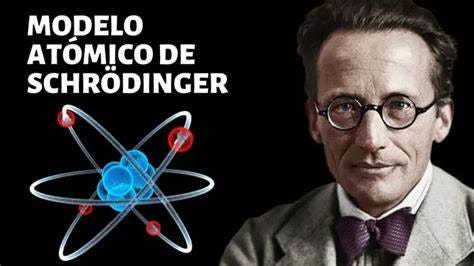Erwin Schrödinger: Quantum Mechanics Pioneer and His Lasting Influence
Written on
Introduction to Erwin Schrödinger
Erwin Schrödinger (1887–1961) was an Austrian theoretical physicist celebrated for his crucial role in developing the wave theory of matter and the foundational aspects of quantum mechanics. His legacy is profoundly tied to the Schrödinger equation, which is essential for calculating a system's wave function and its evolution over time. For his groundbreaking contributions, Schrödinger was awarded the Nobel Prize in Physics in 1933 alongside British physicist P.A.M. Dirac for their significant advancements in atomic theory.
The Emergence of Quantum Wave Mechanics
In a remarkable span of six months in 1926, Schrödinger released a series of influential papers that established the basis of quantum wave mechanics. These writings introduced his now-legendary partial differential equation, serving as the core equation of quantum mechanics. By embracing Louis de Broglie's 1924 concept of the dual wave-particle nature of matter, Schrödinger created a wave equation that characterizes the behavior of such systems. This equation, known as the Schrödinger equation, represented a departure from classical mechanics. Unlike Newton's laws, which predict precise paths for celestial bodies, Schrödinger's wave functions indicate only the probabilities of physical occurrences, capturing the intrinsic uncertainties of quantum phenomena.
Philosophical Challenges and Schrödinger’s Cat
Schrödinger, along with several contemporaries, found the probabilistic essence of quantum mechanics troubling. He spent considerable time in his later years confronting philosophical challenges related to the interpretations of the theory he had significantly influenced. His most famous critique emerged in the form of the 1935 thought experiment known as Schrödinger’s cat. In this scenario, a cat is confined in a sealed box with a radioactive atom that has a 50% chance of decaying and releasing poison that would kill the cat within an hour. Until the box is opened and an observation is made, the cat exists in a superposition of being both alive and dead, mirroring the atom's uncertain state. Schrödinger devised this paradox to underscore what he perceived as the absurdity of certain interpretations of quantum mechanics, igniting ongoing debates about reality and observation.
Broad Contributions and Intellectual Depth
Beyond his work in quantum mechanics, Schrödinger made significant strides across various physics fields, including statistical mechanics, thermodynamics, electrodynamics, and cosmology. His foray into biology is exemplified by his 1944 book “What is Life?”, which examined the physical principles underlying genetic processes and influenced later advancements in molecular biology.
Schrödinger's intellectual curiosity also led him to engage with philosophy, particularly ancient and Eastern thought. His book “Nature and the Greeks” (1954) showcased his appreciation for ancient Greek scientific inquiry and his skepticism regarding science's ability to fully unravel the mysteries of existence. In his final publication, “My View of the World” (1961), he expressed a metaphysical perspective akin to Vedanta mysticism, highlighting his belief in a deeper, interconnected reality.

Schrödinger's Intellectual Versatility
Erwin Schrödinger distinguished himself from his peers through his remarkable intellectual versatility. During a period when scientific fields were becoming increasingly specialized, he managed to make valuable contributions across a wide array of disciplines. His work not only enhanced our understanding of quantum mechanics but also created a bridge between science and philosophy, leaving a legacy that continues to inspire and challenge thought across various domains. Schrödinger's profound insights and philosophical explorations remain central to ongoing discussions about reality and the limitations of human comprehension.
Chapter 2: Insights into Schrödinger's Life and Work
In this video, "Great Physicists: Erwin Schrödinger, Founder of Quantum Mechanics," explore the life and groundbreaking achievements of Erwin Schrödinger, highlighting his pivotal role in the development of quantum mechanics.
Legacy of Schrödinger's Thoughts
The video, "The Impact & Legacy of Erwin Schrödinger's 'What is Life?'," delves into the profound influence of Schrödinger's work on biology and its implications for understanding life at a molecular level.